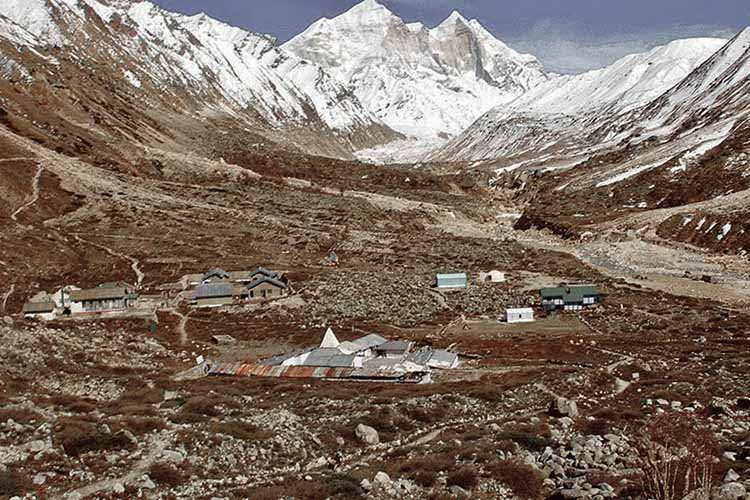to be announced
Yoga and Ayurveda course in India
Organized by Yoga Surya International India
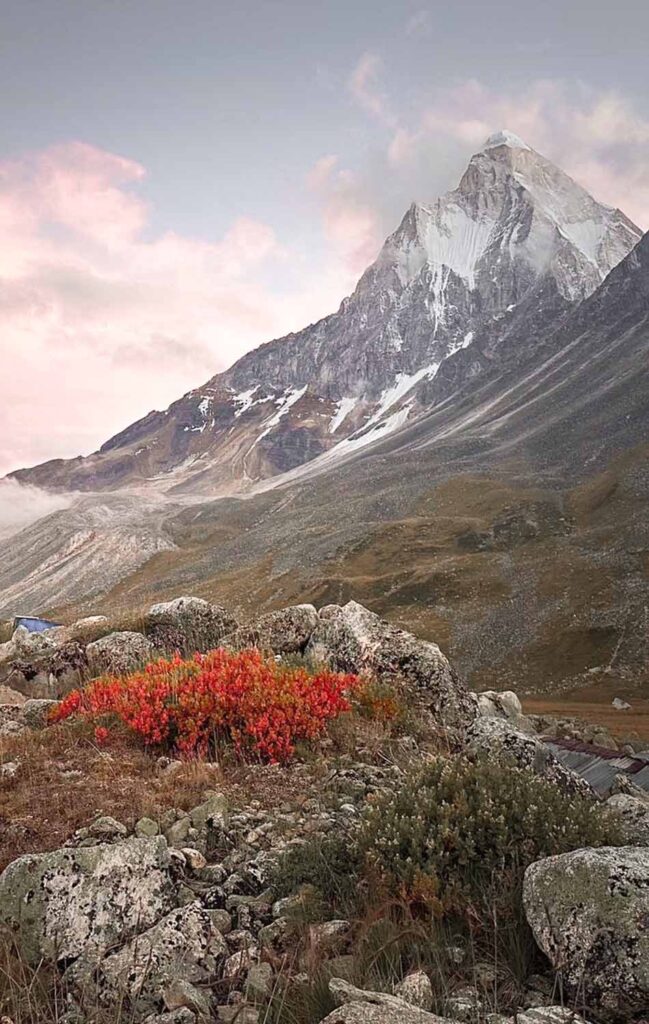
A course in traditional Indian teachings
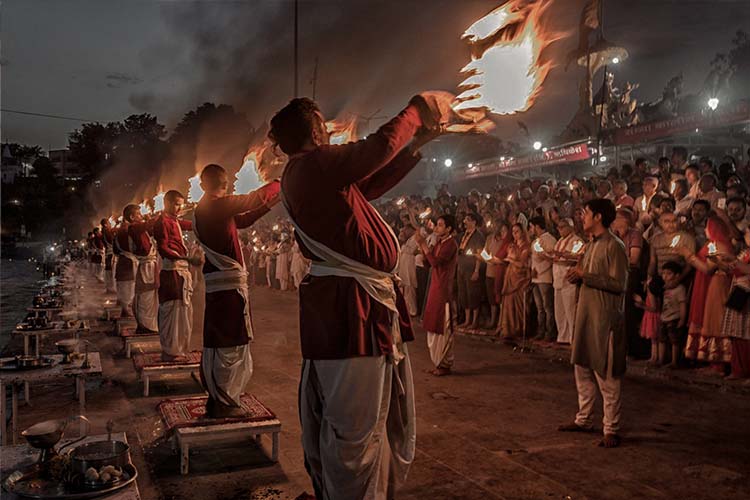
A course in traditional Indian teachings in India
Places of pilgrimage at the sources of the Ganges
This course in India is much more than just a yoga vacation or high mountain hiking. The goal of our course is to observe, perceive and understand yoga, Ayurveda and other aspects of ancient Indian culture in an authentic environment, which are reflected in the daily life of local residents.
This course is organized with the support of Ajay Bobade with the aim of giving all those seriously interested in yoga and traditional Indian wisdom the opportunity to see interesting places that have deeply influenced him. The current practice of yoga in the Czech Republic is significantly influenced by the commercial market and is very different from what is really hidden under the words Yoga and Ayurveda. The purpose of this journey, which we have been embarking on regularly since 2008, is not only to learn about the role of yoga and Ayurveda in everyday life, but also to learn from local people. Their life is still closely connected with nature and they live in harmony with the mountains that surround them.
Life on the banks of the Ganges
Immediately after your arrival in Delhi, we head to the mountains. Gangotri is one of the four places on the Chota Char Dham pilgrimage circuit. And it is there, in remote places, high in the mountains and forests, that monks and sadhus live who have decided to spend the rest of their lives outside of society. Meeting them, their happiness, humility and dedication is inspiring, although the living conditions are really very modest and difficult from our point of view.
We can observe the sacred river Ganges and its transformations from close proximity for several kilometers. From its source, where it is still called Bhagirathi and its water is friendly and calm, through its wild, stormy and dangerous form in Gangotri, to the strong mighty flow in Rshikesh. All its forms take one’s breath away and invite one to stop, think, contemplate, meditate.
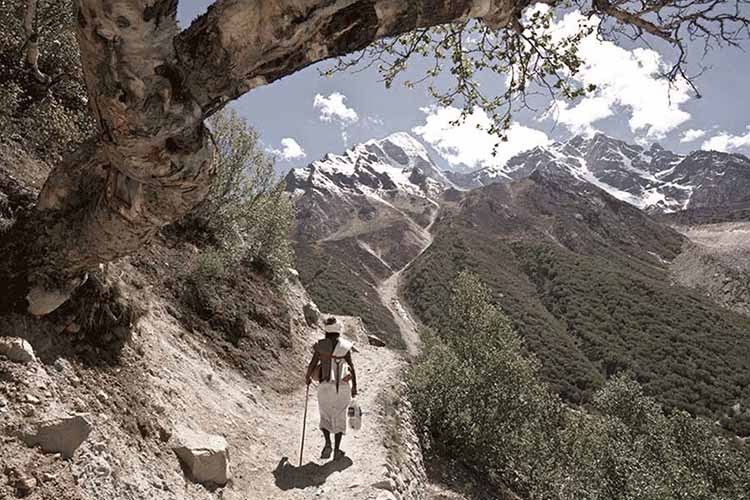

Local life and culture
Throughout the course, we will see the local residents in their daily activities, which take place in abundance right on the street. From day one it will be clear to everyone that Indian culture is very different from Czech. And although India is noisy and sometimes confusing for the eyes and ears of a European, it brings a certain peace. For example, people in the mountains and in the foothills live in difficult conditions, and yet their faces reflect happiness. As if they know they are exactly where they are meant to be and are doing exactly what they are meant to do and desire nothing else. They accept their life as it is with joy and humility.
During the course we participate in many rituals and ceremonies in which various gods are worshiped and mantras and other texts are recited. We will visit a traditional celebration full of fires, which takes place every year in an ancient village. The highlight is an almost private concert of classical Indian music performed by top musicians playing, for example, tabla, sitar and other very distant musical instruments.
Gangotri and Tapovan
At an altitude of 3100 m, on the banks of the river Bhagirathi (the source of the river Ganga) lies the Hindu pilgrimage town of Gangotri. The town is dominated by the temple, which is only open for six months of the year, from May to November, and for the rest of the year, the Ganga Goddess moves to the village of Mukhba. Around the town of Gangotri towards the Chinese border, a vast national park stretches out, with the snow-capped Himalayas, the Gomukh Glacier, the headwaters of the Ganges and the Tapovan Plateau.
Tapovan is located at the foot of Mount Shivling at an altitude of 4463 m. It is home to several monks who live in this remote place year-round or seasonally in simple dwellings and caves. In the season when the whole area is not hidden under layers of snow, it is, despite the high altitude, full of vegetation, flowering plants and meadows. Tapovan is a wonderful place where people go who want to be close to the local monks for a few moments. At the same time, due to its location, it is used as a base camp for mountaineering expeditions.
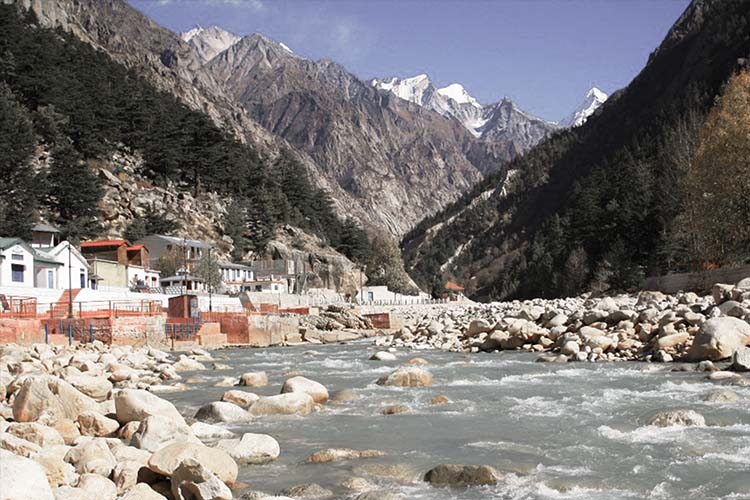

Bhojvasa and Gomukh
Bhojvasa – A stopover in the Ganga River valley, on the way to the glacier and Tapovan. Here we will sleep in woven tents, bathe in fresh water or the river, eat local food and look at the beautiful mountain tops in the morning.
Gomukh – Part of a glacier that represents one of the primary sources of the Ganga River. The Gangotri glacier is one of the largest in the Himalayas (due to global warming, it is visibly smaller every year). In previous years, people walked directly over it, but now, due to its thawing, our guides choose a different, safer route.
Deva Sanskriti Visvavidyalaya
At the end of the trip, we will be guests at Deva Sanskriti Visvavidyalaya. It is an Indian residential university located in Shantikunji near Haridwar. It was founded in 2002 and provides its students with knowledge in areas such as yoga and health, Indian culture, music and languages, communication, rural management and sustainability or theology.
The university is completely self-sufficient. In its area there are, for example, weaving and sewing workshops for the production of university clothes or workshops for the production of handmade paper. From the products of their own cows, they produce cosmetics, medicine and/or biogas. They grow a whole range of plants for their own production of Ayurvedic medicines. The meeting with the vice-chancellor of the university is often unforgettable. Dr. Chinmay Pandya, his calm, warm speech and words of wisdom touch everyone’s heart.
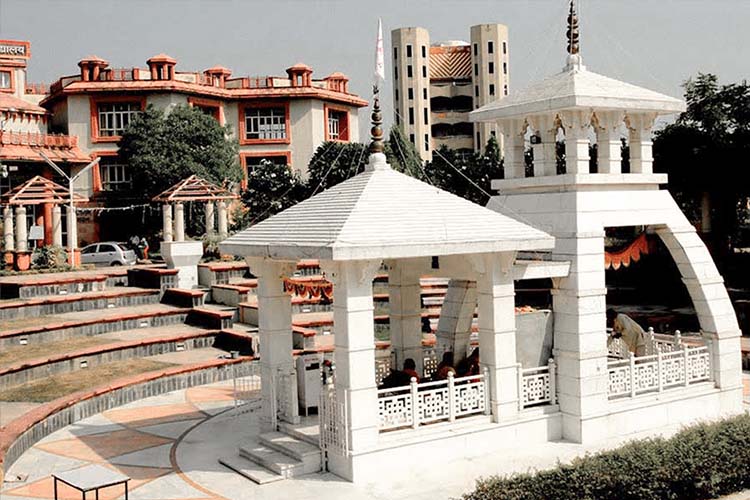
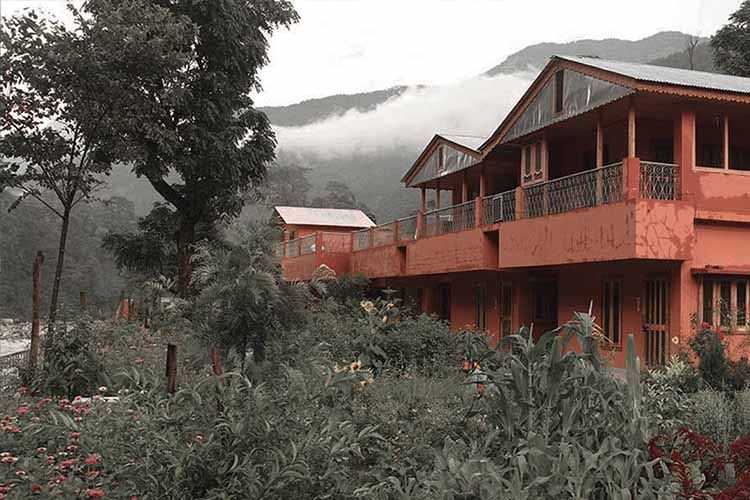
Tapasyalayam ashrama
Netala and Uttarkashi – Mountain village, where there is a small ashram of the ascetic, philosopher and expert in Vedanta and Sanskrit, Swamini Pramananda. A beautiful place in a blooming garden on the banks of the roaring Ganges. If the Swamini is present in time for our journey, we will meet her personally.
Here you will find the Ganga Dhyana Mandir, a beautiful natural cave temple dedicated to Goddess Ganga, where worship, puja and bhajans are held daily.
Every year, from March to November, Tapasyalayam offers a number of programs including programs for spiritual reflection and contemplative practices, yoga retreats, nature walks, satsangs, pilgrimages to Gangotri, Gomukh and more.
Course price and payment
Course price: 34,000 CZK
Air ticket, travel insurance and visa are not included in the course price
Detailed information
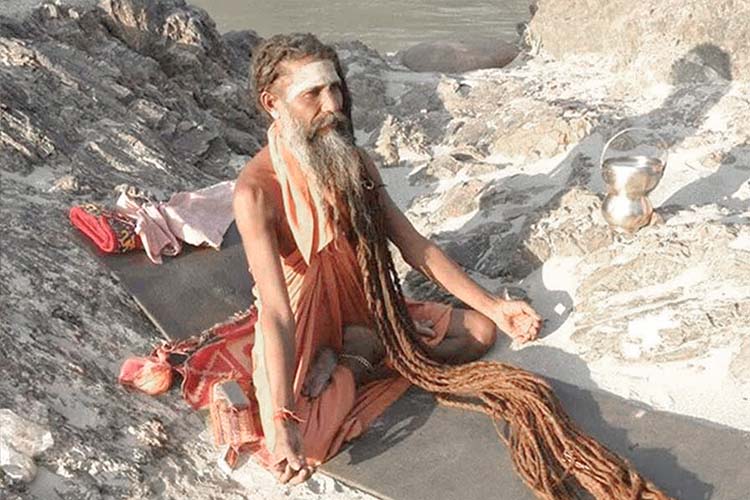
What awaits us?
Program
The daily program is set only as a framework and is adapted on the spot to the current conditions and weather.
Accommodation and food
Detailed terms and conditions – Yoga and Ayurveda course in India
The course is organized by the institution Yoga Surya International India, T-2/947, Rashtrabhushan, So, Rupeenagar, Pune 412114, Maharashtra, India, with the support of Ajay Laxman Bobade, apartment Hrobičany 10, Sběř, ID: 275 18 990. Ajay L. Bobade only provides free organizational support.
The detailed terms and conditions of the course are superior to the general terms and conditions to the extent that they differ from them. In the event of a conflict between the general terms and conditions and the detailed terms and conditions of the course, the provisions of the detailed terms and conditions of the course shall apply.
The program schedule shown on the website is indicative only and may change depending on available facilities, weather and local conditions.
Attendance at all lessons is mandatory and an excuse from a lesson is only possible for health reasons.
Yoga practice will take place in the ashrams during the stay, conditions permitting. Elsewhere during the trek, only theoretical teaching will take place.
Fees
The total price for the course is CZK 34,000.
Visa fees are not included in the course price.
Airfare fees are not included in the course price. We can help the participants by buying visas and plane tickets, but the school is not responsible for arrival, departure or anything else connected with them.
If a course participant is unable to attend, a substitute can take his place. In such case, the payment for the course will be refunded in full once the replacement participant has paid the full amount.
Cancellation fees are as follows:
- Up to 15 days before departure – payment of a service fee of CZK 8,000
- From 15 days to the day of departure – a cancellation fee of 50% of the course price
- After departure – cancellation fee of 100% of the course price
Course Rules – Exclusions
A participant can be excluded from the course and from the group for the following reasons:
- If the course participant disrupts the program.
- If the participant does not participate in the program without a proper medical reason.
- If a participant endangers the life of another participant through irresponsible behavior.
- If the participant is not willing/able to follow the cultural rules or does not respect the culture of the local community.
- If the participant uses drugs or large amounts of alcohol.
In such cases, the excluded participant will not be refunded the full price of the course and will not be given any compensation. All other organization, including accommodation and transport of the excluded participant, is taken care of by the participant himself.
If the participant is not satisfied with the program and would like to leave the course, they will have the option to do so without a full refund of the course price.
Additional rules and recommendations regarding the course, local culture and behavior can be found in the “Detailed Course Rules” tab.
Any dispute arising during the course of the course in India shall be governed exclusively by these terms and conditions.
Detailed terms and conditions – Yoga and Ayurveda course in India
These rules are the result of 20 years of experience associated with Indian culture and environment. We hope that these guidelines will be understood not only as rules, but also as an intelligent framework for having beautiful experiences in India.
1. Hygiene and health
One of the main rules of the course is strict hygiene measures regarding food and water. It is important to realize that water mixed with food can be a source of life-threatening diseases, diarrhea, dehydration, etc. Therefore, during the course, it is strictly forbidden to buy and consume any drinks and cold food, including fruit. Even though such dishes may look tempting, they can endanger the health and life of the consumer and at the same time negatively affect the progress of the course for other participants. If any member of the group does not follow these rules, they will cause problems for themselves and others.
2. Indian culture and monks
Our goal is primarily to meet monks who live far from society – true, non-commercial saints. These people stay far away not only from Indian society, but also often avoid contact with people from the West. There are even a few ashrams where the accommodation of Westerners is strictly prohibited. However, our teacher Sri Veda Chaitanya (Ajay Bobade) is highly respected among these monks, and it is only because of him that the doors of these ashrams are exceptionally open for our course as well. And because we have this rare privilege, it puts a great responsibility on the course participants in terms of good behavior and compliance with ashram regimes and respect for local culture.
The practices of the monks, their behavior and manners may be new to our participants. Their thinking may be different from what we are used to. In such a case, one must be understanding and respectful, and refrain from any comments. They didn’t invite us, we come to them to learn from them, and we have no right to judge them.
Although it is warm in India, exposing legs and shoulders while traveling or in an ashram is considered disrespectful. So respect needs to be prioritized over personal comfort, even if, for example, long pants are uncomfortable.
3. Yoga and Ayurveda
In the Western world, yoga is often seen as exercise and Ayurveda as the use of herbs and procedures. This is unfortunately very far from how yoga and Ayurveda are understood in ancient Indian culture. It is a deep philosophical system connected with health, happiness and life as such. And it is firmly integrated into the life of monks and local residents.
Therefore, our course has two study components – one is to observe the local people and monks and the other component is to understand this integration from an Indian perspective. The monks share their life concepts and studies in their dreams and these discussions are translated into Czech by Mr. Ajay so that everyone can understand well. At ashrams, we practice yoga in this way every day, but we also hold regular lectures related to these experiences.
4. Planning
Mountain environments are highly unpredictable due to many factors, including weather, local legislation and regulations, government authorities and local events. Mountain weather can change from hour to hour and we take no risks for safety. Therefore, the plan of all activities in the mountains is preliminary. So you have to be patient for slight changes in plans, adapt and trust the decisions of our mountain guides.
5. Medical care in India
Especially in remote areas such as high mountains, medical care is not comparable to what you know from the Czech Republic. It is often unavailable, remote and in some cases of very poor quality. Therefore, it is important that course participants do not wander freely around the city and do not stray from the designated routes. Indian forests and mountains are not empty like Czech forests, but are full of dangerous animals, poisonous plants and insects. Indian forests are not a tourist area but are home to diverse wildlife. Dealing with any health issue can be very difficult and can mean a long journey through the mountains that can take several hours. Whoever does not comply with this threatens not only his own life, but also the life and health of others and creates enormous complications for the entire group. All course participants must be able to listen and follow the rules.
Conclusion
Although these rules are clearly explained to all participants at the outset and listed on our website, there are still people who choose not to follow them. While most people follow these guidelines without a problem, there are always those for whom their ego is more important than reason. Then, despite sufficiently frequent warnings, complications and conflict situations arise. If the participants repeatedly do not follow the rules even after several reminders, and with their behavior or provocation they endanger their lives and the lives of others and spoil the unique experience of other participants, we have no other option but to exclude these people from the course.
If these people, by mutual agreement, decide to leave peacefully, we will be happy to provide them with joint transport and an allowance for accommodation and food during the following days in India. However, if they disturb the peace in the ashram due to their ego, show disrespect to the monks and to the organizers of the course, they will be expelled from the course without any compensation according to its rules.
These decisions to exclude people and the options they will be given are not made by Mr. Ajay alone, but are the result of a discussion between the students involved, the Indian organizers and the monks who are in that ashram or place. These decisions are final and our responsibility for that participant ends.

